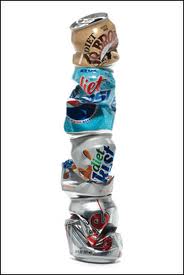New Study on Toxins and Fertility
 Monday, November 19, 2012 at 11:06AM
Monday, November 19, 2012 at 11:06AM A powerful new study published in the peer reviewed journal from the National Institute of Environmental Health Sciences (a branch of the NIH) makes an association between fertility and exposure to persistent environmental toxins like pesticides, PBDEs (the flame retardants found in most all upholstered furniture) and PFOAs, ubiquitous chemicals from a range of sources houshold dust and microwave popcorn bags.
The scientists from a range of research labs including Ohio State, Emory, Texas A&M and the National Institute of Child Health and Human Health recruited 501 couples (18 to 40 years old) in Michigan and Texas in counties with reported exposure to persistent environmental chemicals, and who were planning pregnancy in the next six months. The measure of fertility was "time to pregnancy" and the overall result was that couples with higher levels of exposure to chemicals took longer to get pregnant.
The couples were off of all contraceptives for at least two months and off of injectible contraceptives for a year. Fasting blood samples were taken and analyzed for the presence of 60 different environmental pollutants including ten pesticides, ten types of PBDE flame retardants, 36 PCBs and seven PFCs (pollutants most famously known for being used in the manufactur of Teflon and Gortex.) The couples were observed for a full 12 menstrual cycles, making this study--called LIFE (for Longitudinal Investigation of Fertility and the Environment)--the longest such couples study and the first to look in detail at so many potential toxins.
To read about the study results, click here.



